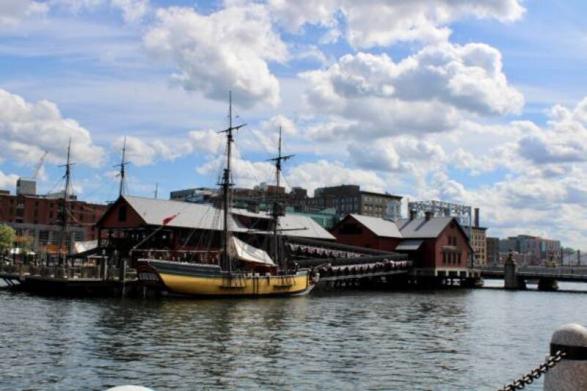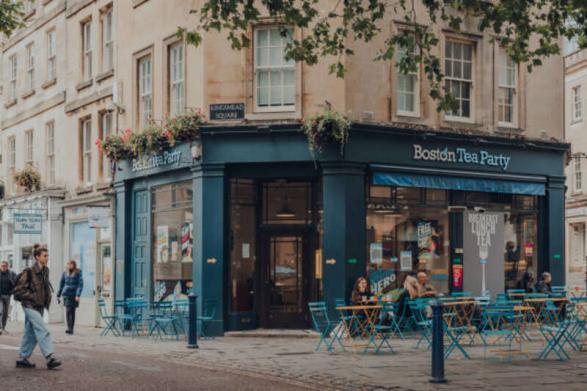Brewing Rebellion: The Boston Tea Party After 250 Years
Jan 17, 2024 By Susan Kelly
A quarter of a millennium has passed since one of the most iconic events in American history, the Boston Tea Party. This act of defiance, which took place on the frigid night of December 16, 1773, is embedded in the collective memory as a pivotal moment in the path to American independence. A group of American colonists, disenchanted by the British imposition of 'taxation without representation,' disguised themselves as Mohawk Indians, boarded British ships, and dumped 342 chests of tea into Boston Harbor. The repercussions of this audacious act echoed beyond the colonies and the United Kingdom, spurring a series of events that eventually led to the Revolutionary War. In this retrospective, we delve into the historical context, the events of that fateful night, and the enduring legacy of the Boston Tea Party, 250 years on.
The Historical Context

The Boston Tea Party was not an isolated event, but rather a culmination of years of mounting tensions between the American colonists and the British government. The 13 colonies had been subject to heavy taxation by the British Crown, including the infamous Stamp Act of 1765 and the Townshend Acts of 1767. These taxes were imposed without any representation in Parliament for the colonists, leading to a growing sense of frustration and anger. The colonists believed that they were being treated unfairly and their rights as British citizens were being violated.
The Tea Act
In an attempt to save the struggling British East India Company from bankruptcy, the British Parliament passed the Tea Act in 1773. This act gave the company a monopoly on selling tea to the American colonies, effectively undercutting local merchants and creating resentment among colonists. The Tea Act also included a hidden tax on tea, further fueling the anger of the colonists.
The Events of the Boston Tea Party
On the evening of December 16, 1773, a group of approximately 150 colonists gathered at the Old South Meeting House in Boston to discuss how they would respond to the arrival of three British tea ships. The decision was made to prevent the unloading of the tea and to send it back to Britain. Disguised as Mohawk Indians, the colonists boarded the ships and dumped 342 chests of tea into Boston Harbor. This act of defiance, while appearing destructive in nature, was carefully executed with no harm caused to any individuals or property other than the tea itself.
The key actors involved:
- Samuel Adams: A prominent political figure and a leader of the Sons of Liberty, a group that organized protests against British policies. He is often credited as one of the main instigators of the Boston Tea Party.
- John Hancock: A wealthy merchant and politician who also played a key role in organizing the protest.
- Mohawk Indians: While there is no definitive proof, it is believed that the colonists disguised themselves as Mohawk Indians to avoid being identified.
The immediate aftermath:
The British government responded swiftly and harshly to the Boston Tea Party. They passed a series of laws, known collectively as the Coercive Acts or Intolerable Acts, which closed Boston Harbor, suspended Massachusetts' self-government, and allowed British soldiers to be quartered in private homes. These acts only further united the colonists against British rule.
The Impact and Consequences

The Boston Tea Party had a profound impact on the politics and attitudes of both the American colonists and the British government. The event galvanized the colonists' spirit of resistance and fueled their desire for independence. It also sparked similar acts of defiance in other colonies, leading to a series of events that ultimately culminated in the Revolutionary War.
On the other hand, the British government saw the Boston Tea Party as a direct challenge to their authority and responded with even harsher measures, further alienating the colonists and pushing them towards rebellion.
The response from the British government:
The British government passed the Coercive Acts in response to the Boston Tea Party. These acts were meant to punish the colonists and reassert British control over the colonies. However, they had the opposite effect of uniting and strengthening colonial resistance.
250 Years On: The Enduring Legacy
The Boston Tea Party remains a symbol of American courage, defiance, and determination in the face of oppression. It continues to be studied and celebrated as a crucial moment in American history, inspiring future generations to stand up for their rights and freedoms. The event also serves as a reminder of the power of civil disobedience and nonviolent resistance in effecting change.
250 years later, the Boston Tea Party continues to be relevant and serves as a vital piece of American identity and history. As we reflect on this event, let us remember the sacrifices made by those brave colonists who risked everything for their beliefs, and let us continue to draw inspiration from their actions in our pursuit of liberty and justice for all.
Conclusion
The Boston Tea Party was a pivotal moment in the American quest for independence, serving as a catalyst for revolution and shaping the course of history. The event serves as a powerful reminder of the importance of representation, fair governance, and standing up against oppression. 250 years on, it continues to be celebrated as a symbol of American values and ideals, inspiring future generations to fight for their rights and freedoms. Its enduring legacy serves as a testament to the resilience and determination of the American people, making it an integral part of our collective history and identity. So let us remember the Boston Tea Party not just as an act of rebellion, but as a powerful statement against tyranny that continues to reverberate through time. So here's to the brave colonists who sparked a revolution and changed the course of history.

Sep 23, 2022 Susan Kelly

Feb 01, 2023 Susan Kelly

Jan 27, 2024 Susan Kelly

Sep 27, 2022 Susan Kelly

Jan 18, 2024 Triston Martin

Jul 28, 2023 Triston Martin